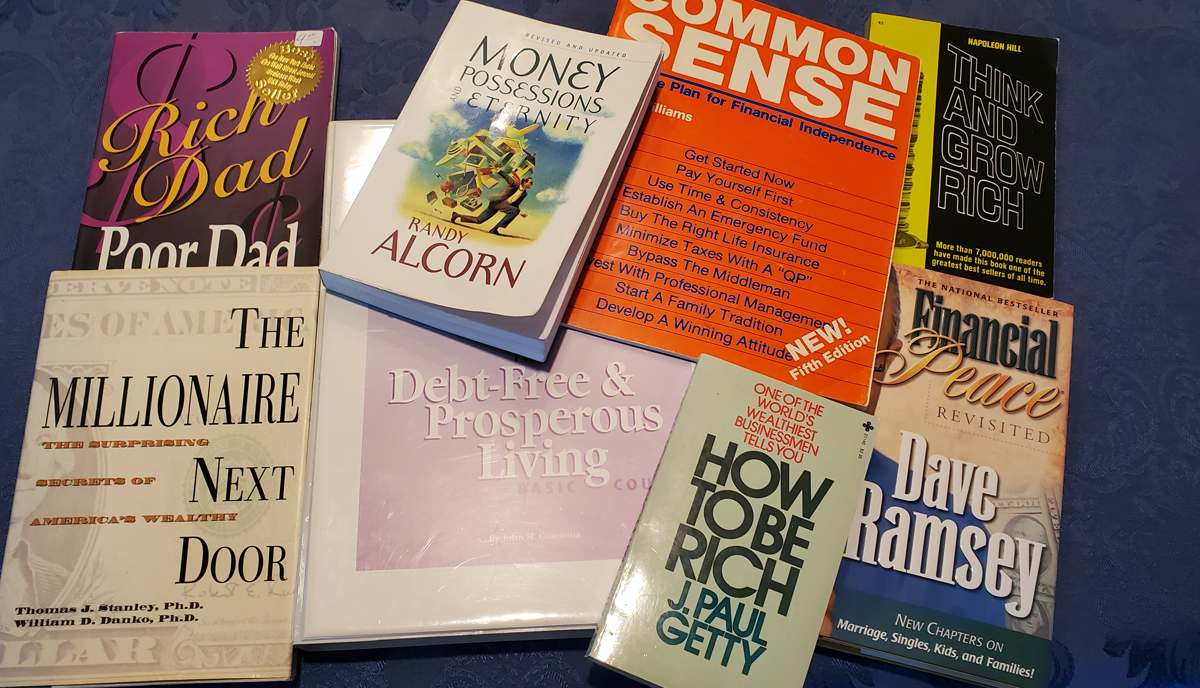Certificates of Deposit (CDs) come in two basic types, those you buy directly from a bank or other lending institution and those available from brokerage firms. Essentially the brokerage firms are offering bank CDs that can be traded like a bond.
Brokered CDs are a special class of CDs offered by a lending institution with the express purpose of selling them to a brokerage firm. Because the institution moves a lot of CDs at the same time, a higher interest rate is offered. I have been using brokerage CDs exclusively now for several years.
Why do I include CDs in my portfolio? The majority of my money is invested in stock mutual funds and real estate. If I need money above what my real estate cash flow supplies, I need to sell stocks or real estate which are both subject to market conditions. To avoid worrying about the market, some of my money is kept in cash and liquid assets to use when specific upcoming expenses occur.
One great example of large cash requirements at specific times was the five years I was withdrawing money from my IRA using the Substantially Equal Periodic Payment plan to take my money penalty free before I was 59 ½ years old.
In order to avoid market timing issues, I converted those payments to cash for the distributions while the market was up. I made one distribution immediately, and then purchased CDs for each of the next four required withdrawals. Thus, I had four CDs with 1, 2, 3, & 4 year maturity dates. This is an example of a CD ladder. When it was time to make the next distribution, a CD would mature and I would use that cash to make the distribution.
If I had simply kept the cash in my bank account, it would have earned little to no interest while I was waiting for the date I needed to use the money. The CDs had a much higher interest return than my savings account offered.
Let’s look at the advantages brokerage CDs have that make them the better option.
Higher Interest Rate
Brokerage CDs offer higher interest rates than banks. As I wrote this I looked up the current values for one-year CDs. My local bank was offering 2.02% interest. The highest one-year CD from my brokerage firm was 4.85% interest from a familiar national bank.
Since we have a local branch of that national bank, I checked their rates. The same chain of banks who will sell me a one-year CD for 4.85% through a brokerage firm will only give me 0.05% if I walk into the local bank. In this case, I get almost 100x more interest by purchasing the CD from my brokerage firm.
No Early Withdrawal Penalties
When I acquire a CD from my local bank, they will charge me a penalty if I take the money out before its maturity date. The penalty is usually 3-6 months’ worth of interest.
But since the brokerage firm also offers CDs on the secondary market, if I want to cash in my CD early, they will take it back without penalty and sell it to someone who is interested in the maturity date I owned. There is no penalty for doing this, but the resale will be based on current market rates. So depending on how the interest rate changed since I purchased the CD I could either make or lose money by cashing out early. However, I never plan to cash out early. The CD was purchased for something specific and if I take the money out early to do something else, it won’t be available when I plan to use it.
No Auto Reinvestment
Usually when I am buying a CD it is because I have a specific use for the money at a specific future date. When I buy from the bank, if I don’t come in when the CD is due, they will renew it for the same length of time at the new rate.
I don’t want my CDs renewed. With the brokerage firm, when the CD matures, the money is transferred into my savings account and waits for me to make the next move. I don’t have to rush to withdraw the money. When I’m ready, I can send the money where it is needed.
Easier to Shop Multiple Banks for Rates
One of the features I really love is the concept of one stop shopping. When I log into my brokerage account and look for a one-year CD, I might see two dozen different banks that have options available for me. All of which have a slightly different maturity date.
I love the opportunity to comparison shop CDs all on the same computer screen. I simply pick the one I like, usually from a bank whose name I recognize, then click a few buttons and I own the CD.
Easy to Set Up Laddered CDs
Because I can see multiple CDs on my brokerage account, it is very easy for me to set up a CD ladder. In the example I stated earlier, I could buy four CDs with different maturity dates all at the same time. I can set up a CD ladder in about five minutes and be done with it. Traveling to the nearest bank would take much more time.
Downsides
Everything has some downsides and brokered CDs are no exception.
Can be Callable
Some brokered CDs can be called if interest rates suddenly drop. The broker could pay off all the higher interest CDs and require you buy a new one at a lower interest rate. For this reason, I prefer to buy non-callable CDs which the broker does offer.
Cashing Out Early Can Lower its Value
Even though there is no early withdrawal penalty, you will be subject to market fluctuations if you take the money before the maturity date. If you leave the money in the CD until it matures, you get what was agreed upon. If the interest rates have gone up since you bought your CD, then your CD’s value will have gone down in the secondary market. If your original CD was purchased at 2% interest and the market is currently paying 4%, no one wants to buy your CD. So, in order to sell it early, you must discount the price.
On the flip side, if you bought a CD at 4% and the interest rate has now fallen to 2%, everyone wants your CD when you cash it in early. They will pay you a premium price to take over your terms, making you extra money.
Not Investing Locally
If I go to my local bank and buy a CD, that money will be used locally to make loans to people in my neighborhood. I am helping my own community when I buy CDs or make deposits into a local bank.
If I buy from a national chain, who knows where that money will end up and which community will benefit. I always try to shop locally first for this very reason, but if I can’t get what I want locally, I purchase the products and services online.










